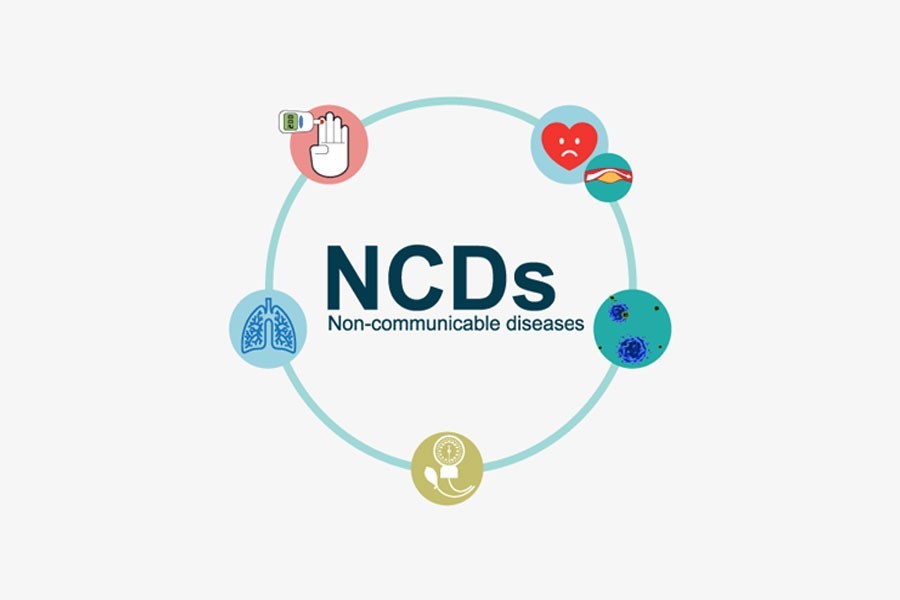As elsewhere in the world, all attention is now focussed here in Bangladesh on taming a scourge called Covid-19, caused by the virus SARS-CoV-2. The factors such as the fast spread of the disease from one place to another, the non-availability of any effective antidote and the severe disruption it has been causing to life and living have aroused grave concern all over. The virus claimed about 8250 lives, infected nearly 0.5 million people in Bangladesh in 2020 besides taking a heavy toll on its economy.
But at least eight non-communicable diseases, according to a survey conducted by the Bureau of Statistics, the state statistical organisation, had taken a human toll of about half a million people in the country in the year 2020. The diseases are heart ailment, brain haemorrhage, cancer, respiratory diseases (excluding pneumonia), asthma, chronic kidney disease (CKD), high blood pressure and diabetes. There is no authentic survey on the number of people suffering from these diseases. The number must be a staggering one. At least, the annual death figures do strongly point to such a possibility.
The field-level officials of the BBS have gathered the data on deaths from various diseases. Such data, however, might not match the ones compiled by the Directorate General of Health Services (DGHS) since the health infrastructures up to the Upazila level remain its primary sources of data.
Data mismatch is not an issue here. What is worrying is the death of so many people from various non-communicable diseases. Heart diseases that claimed over 0.223 million lives in 2020 remained at the top of the table, followed by brain-haemorrhage, cancer and respiratory diseases.
The fatality figure gives rise to a pertinent question: are the state health facilities capable of offering necessary treatment to a huge number of patients suffering from major non-communicable diseases? The answer is a big no. The weaknesses of the country's health system came to the fore following the outbreak of the Covid pandemic. After the initial hiccups, the government, however, managed the Covid emergencies better, but at the cost of people suffering from other diseases.
The number of deaths from most non-communicable diseases in 2020 was more than that of the previous year. The increase was staggeringly high with kidney diseases, brain strokes, respiratory disease and cancer. A further squeeze of the facilities available at the government hospitals and clinics because of the outbreak of the pandemic and doctors not attending patients for health safety reasons might have played a part in the rise in the number of deaths from non-communicable diseases.
Now that all concerned are aware of the shortcomings in the country's health system, everybody would expect genuine efforts to mend those. One of the key weaknesses is the allocation of insufficient resources for the health sector. Another most-discussed flaw is the widespread plunder of the meagre resources allocated annually.
The next national budget is not far away. Hopefully, the policymakers would review the relevant issues involving non-communicable diseases and allocate enough resources to help beef up the capacity of hospitals, at least, up to the district level. The patients from far-flung areas rush to the public hospitals in Dhaka, seeking better treatment. But what they face there remains beyond description. There has to be an end to their untold sufferings.


